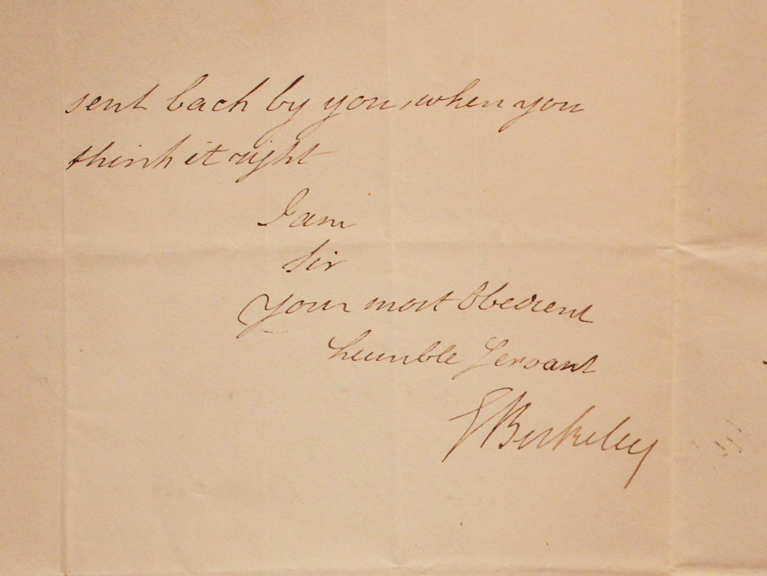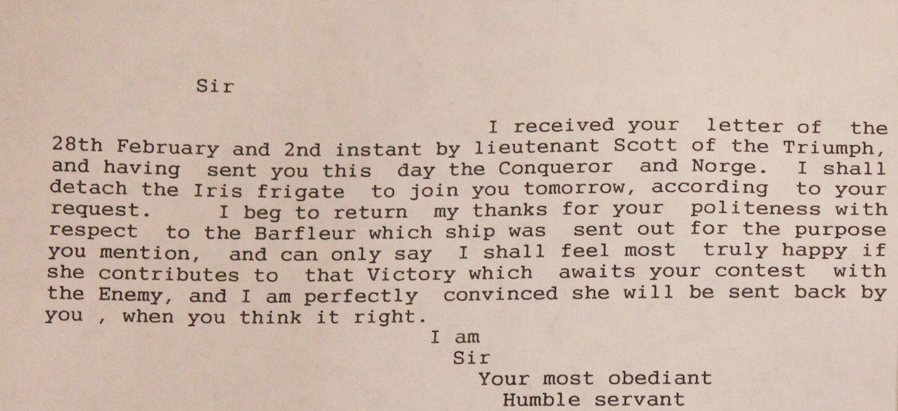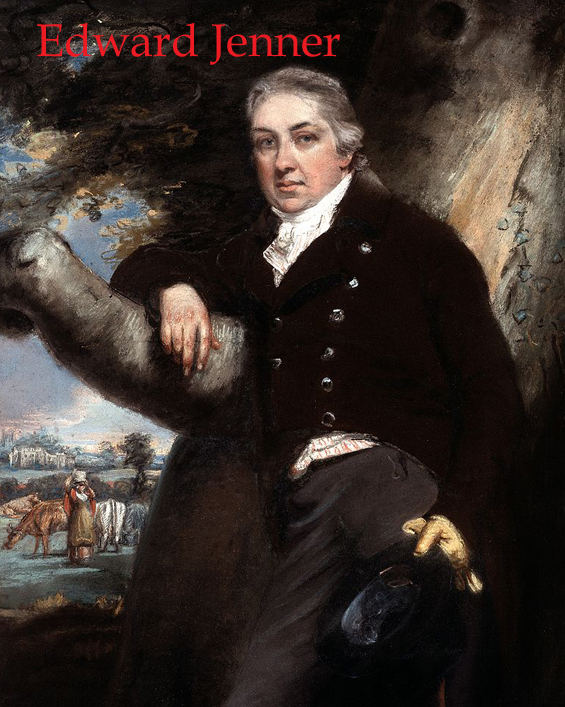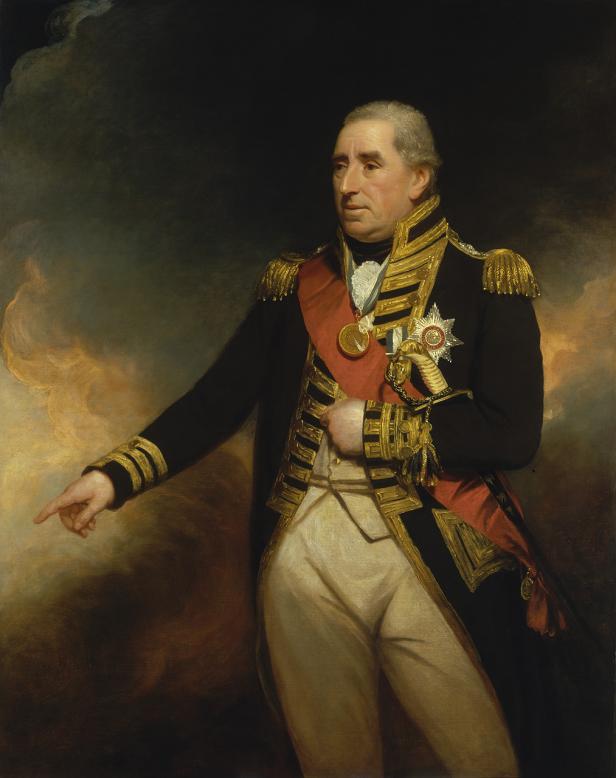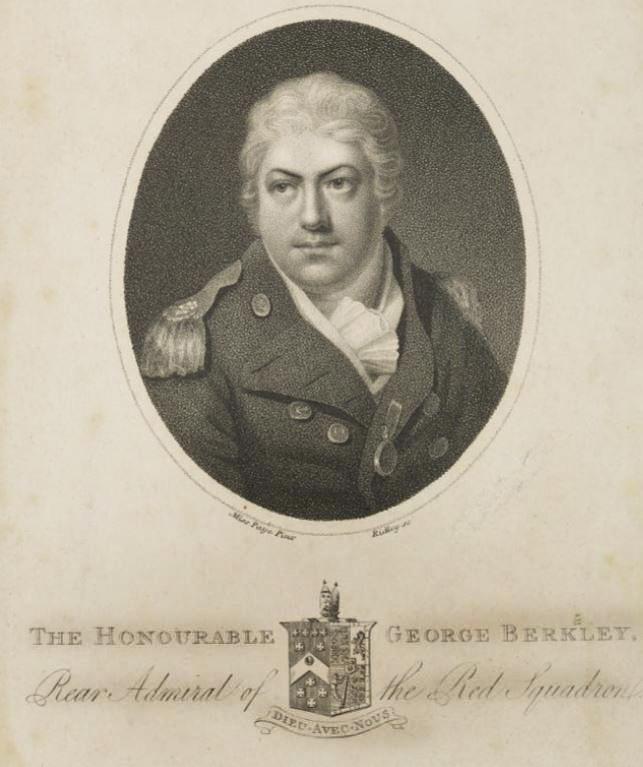A Very Fine And Historical Signed Letter From Admiral Sir G.C.Berkeley Aboard HMS Ganges 1809. From The Admiral That According to Many Historians Personally Instigated The War of 1812 With America, By Ordering The Attack On USS Chesapeake by HMS Leopard
A rare original document of the Napoleonic Wars, that could make a stunning and unique gift. Signed by the Admiral who started the War of 1812, the man who was promoted, in 1810, to be Lord High Admiral of the Portuguese Navy by the Portuguese Regent in Brazil, in order to aid Wellington at sea against the forces of Napoleon. And, furthermore, he was the Admiral who convinced the navy board to investigate, for the health of the navy and England, and to assist the promotion of Edward Jenner’s new vaccine against smallpox. The worlds first vaccine. Edward Jenner, a most remarkable and innovative man, and Berkeley’s friend, who it is said, saved more lives through this work, than any other single man in the history of the world, thanks to his radical idea of the smallpox vaccine, that was promoted, and thus assisted to be accepted by England and the Navy, by the efforts of Admiral Berkeley.
It would make a unique addition to any fine collection, particularly if bespoke framed for the beautiful display of such a significant hand written signed record of Napoleonic Wars British Royal Navy history. Hand signed by the American Station commanding officer, and the instigator of the action, Admiral Sir George Cranfield Berkeley, known as the Chesapeake-Leopard Affair, that culminated in the War of 1812.
The letter was for Admiral Sir J.T.Duckworth, regarding Admiral's Berkeley's sending of three British ships for the assistance of Admiral J.T.Duckworths hoped for victory against the enemy, in March 1809.
Admiral Sir George Cranfield Berkeley who is regarded by some to have instigated the cause of the War of 1812 With America by ordering the attack of HMS Leopard on the American frigate USS Chesapeake. He was a highly regarded friend of the Duke of Wellington, and he was also father-in-law to Nelson's great friend, and commander of HMS Victory, Capt. Thomas Masterman Hardy, and he also encouraged his great friend and physician Edward Jenner to continue his work and research on his smallpox vaccine for the good of naval personnel. This action alone directly connects him to one of the greatest and most successful medical achievements in the history of mankind.
Admiral Berkeley partook in several most notable and significant battles and wars, including;
American Revolutionary War
First Battle of Ushant
Great Siege of Gibraltar
Second Battle of Ushant
French Revolutionary Wars
Glorious First of June
Napoleonic Wars
Peninsular War
Admiral Sir George Cranfield Berkeley GCB (10 August 1753 - 25 February 1818), often known as George Berkeley, was a highly experienced, popular, yet controversial naval officer and politician in late eighteenth and early nineteenth century Britain. Serving on several ships, Cranfield-Berkeley saw action at all three Battles of Ushant, commanded fleets in the West Indies and off Ireland and governed the supply routes to Portugal and Spain which kept Wellington's armies in the field during the Peninsula War. He also enjoyed an extensive political career, reforming military practices in Britain and participating in several prominent scandals including feuds with Charles James Fox and Hugh Palliser.In 1786 Berkeley commanded HMS Magnificent and remained with her for three years until 1789 when he became surveyor-general of the ordnance. He left the post after the French Revolutionary Wars broke out in 1793, taking over HMS Marlborough.
French Revolutionary Wars
Berkeley was still in command of Marlborough when she fought under Lord Howe at the Glorious First of June, fighting as part of Admiral Thomas Pasley's van division there and at the preceding Atlantic campaign of May 1794. At the First of June, Marlborough was dismasted in close combat with several French ships and Berkeley badly wounded in the head and thigh, having to retire below after a period to staunch the bleeding. He had a long convalescence after the action but was amongst the captains selected for the gold medal commemorating the action, only awarded to those felt to have played a significant part in the victory.
Returning to service in 1795, Berkeley commanded HMS Formidable off Brest, Cadiz, Ireland and the Texel, coming ashore in 1798 to command the Sussex sea fencibles. In 1799, Berkeley was promoted rear-admiral and attached to the Channel Fleet, but the gout which had forced his first retirement returned, and Berkeley was forced to take permanent shore leave in 1800. In 1801, Berkeley increased his political interests to compensate for the loss of his naval career.
Berkeley continued building his political status during the Peace of Amiens and by Berkeley had been appointed inspector of sea fencibles, a job he undertook with vigour, conducting a fourteen-month survey of Britain's coastal defences, which greatly improved the island's defences. In 1806. In January 1809 he arrived at Lisbon to assume command of the Portuguese station, his flag flying aboard the Barfleur 98 commanded by his son-in-law, Captain Thomas Masterman Hardy, and with his 22 year-old nephew Maurice Berkeley serving as his flag-lieutenant. In November 1811 Captain John Smith Cowan was placed in acting command of the flagship in succession to Captain Henry Hume Spence. Berkeley enjoyed great success in his support of the army, being lauded by Viscount Wellington for his attention to all aspects of his command, and he also managed to keep the French from taking control of the Spanish fleet at Ferrol
Berkeley left this, his last duty, in May 1812, having been promoted admiral on 31 July 1810 and created Lord High Admiral of the Portuguese Navy.
After a shift in political power, Berkeley fell out of favour somewhat and was dispatched to the North American Station. From there, Berkeley ordered the attack by HMS Leopard on the American frigate USS Chesapeake in retaliation for American recruitment of British deserters. This action, known as the Chesapeake-Leopard Affair, helped precipitate the War of 1812
Having embarrassed the British government with this action, Berkeley was recalled home. However, public opinion supported his orders, so Berkeley was moved to command in Lisbon in the hope he could organise the chaotic supply system for Wellington's army in the Peninsula War. Berkeley recognised that only a dedicated and organised convoy system could keep the supply of men, food and material regular and consequently set one up. Simultaneously, he reequipped and galvanised the remnants of the Spanish Navy, rescuing several ships from capture by the French as well as used frigates to supply partisan units all along the coast of Portugal and Northern Spain.
By 1810, Wellington could truthfully say of Berkeley that "His activity is unbounded, the whole range of the business of the Country in which he is stationed, civil, military, political, commercial, even ecclesiastical I believe as well as naval are objects of his attention". He was promoted to full admiral and made Lord High Admiral of the Portuguese Navy by the Portuguese Regent in Brazil. By 1810 he had used sailors to man coastal defences all over Spain, freeing soldiers for Wellington and also formed a squadron of river gunboats to harry French units from major rivers like the Tagus.
He and Wellington remained good friends for the rest of their lives, and Wellington later stated that Berkeley was the best naval commander he had ever cooperated with. Furthermore, Berkley's contribution, although unrecognised, due to his association of his lifelong friend, Edward Jenner, the pioneer of the worlds first vaccine. The vaccine for smallpox, that Berkeley had persuaded the government to investigate, particularly with regard for the health of the navy.
Jenner, who is is often called "the father of immunology", due to his work, that is said to have "saved more lives than the work of any other human past or present.” may possibly have failed in his groundbreaking idea, if it had not been for Berkeley’s intervention on his behalf.
The paper of this letter bears the watermark and date of Dusautoy & Rump 1806.
The last picture in the gallery is a portrait of Rear Admiral Duckworth, the recipient of the letter, the previous three pictures are of Admiral Berkeley, Admiral Berkeley’s HMS Ganges, and Edward Jenner
Six similar Royal Naval letters, from 1808-1813, are in the "Sir George Cranfield Berkeley Papers" at Rice University, Texas, USA
https://digitalprojects.rice.edu/wrc/british-navy/collections/show/6
Every single item from The Lanes Armoury is accompanied by our unique Certificate of Authenticity. Part of our continued dedication to maintain the standards forged by us over the past 100 years of our family’s trading
Code: 20233
1875.00 GBP


